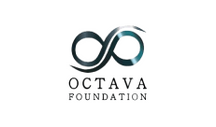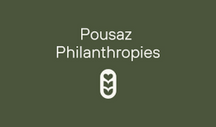
Building a Movement
Global School Leaders
Annual Report 2023
Looking
Back
In countries that are a part of the Global South, nearly 70% of children cannot read and understand a simple story by age 10. We believe that school leaders are a key lever for addressing this learning crisis and improving outcomes for students. School leadership interventions are powerful, especially in settings with limited resources, because they are extremely cost-effective and are directly connected to improvements in student learning outcomes.
In 2023, we worked with 10 partner organizations to impact 4,271 school leaders, 68,293 teachers, and 1,035,215 students.
We deepened our efforts to build a robust evidence base about how school leaders can impact student learning outcomes and how best to support them to achieve this impact.
We worked with a network of key stakeholders to support and prioritize school leadership.



Partnerships

We strengthened our partnership with local organizations in 10 countries across the Global South to impact 4,271 school leaders.
We offer our partners support with technical and strategic resources to deliver world-class training programs for school leaders. Our partners’ work showcases the important role school leadership can play in improving educational opportunities in the Global South.

Since 2017, GSL has supported over 13,000 School Leaders across Latin America, Africa, and Asia.
In 2023, we worked with partner organizations to support the design, implementation, and scale of research-backed programs that impact students and that are customized to meet the specific needs and context of each partner.


In addition to the direct support we provide partners, we also publish our resources as public goods.
Here are some ways that organizations are supporting school leaders with our resources.


Our UPYA program was adapted by RAFI in the Philippines, where they received accreditation from the Philippine Department of Education for a Philippine-specific version of the curriculum. This program is focused on learning in emergencies, a recurring issue in the Philippines, and, this year 200 school leaders completed the program.

Our High Leverage Actions for School Leaders was used by VIVA Vive Valores in Peru to train approximately 100 school leaders. They utilized our High Leverage Actions to enhance their materials, specifically around the professional development of school leaders and culture-building in their schools.

Our Shakti program was adapted by Educaid in Sierra Leone and the Canadian Women for Women in Afghanistan to create programs targeted to school leader needs in their specific contexts. Together these programs trained approximately 150 school leaders.

Evidence Base
.png)
We deepened our work in building a robust evidence base that highlights the impact of effective school leadership development programs.
Little is known about how to best support school leaders in contexts specific to the Global South. Given this, we work with research institutions and academic partners to fill this gap by developing a knowledge repository and research and monitoring instruments that are relevant to organizations working directly with school leaders.
In 2023, we organized our research efforts into two streams to better understand the impact school leaders can have in their schools and the support they need to reach that impact: Program research and Ecosystem research.
We strive to strengthen school leadership training programs with evidence on what works to improve school practices, classroom practices, and student outcomes. We monitor, learn, and evaluate these programs to develop practical knowledge. We are currently carrying out two Randomized Controlled Trials.

Program Akselerasi in Indonesia
In partnership with Inspirasi This program focuses on differentiated learning on foundational numeracy and looks at the impact of additional support from trained school leaders in supporting teachers in the implementation of this type of instruction. In 2023, we launched this project, completed a baseline survey, and supported Inspirasi in training of participants. A funding coalition whose members are the Asian Development Bank, Asian Development Bank Institute, UBS Optimus Foundation, Quantedge Advancement Initiative, and Octava Foundation supports this project.

Leveraging Strengthened School Leadership to Improve Student Outcomes in India
In partnership with Alokit The Telangana RCT is a three-year program, implemented in the Telangana Tribal Welfare / Social Welfare Residential Educational Institutions Society. This RCT helps us understand the impact of coaching and school leadership training on student outcomes. In 2023, we continued our implementation and support of this project through workshops, coaching visits, midline data collection with J-PAL, and a qualitative study. We are already learning that treatment schools focus more on foundational literacy and numeracy assessments and remedial classes than control schools. J-PAL South Asia is supporting this project and this work is funded by Fonds d'Innovation pour le Développement (FID). Click here to learn more about the project.

School Principal | India
Telangana Social Welfare Residential School and Junior College (TSWRSJC), Boath, Telangana
B.M. Suvarna Latha
“In a classroom there are different categories of students. So how do we improve these different levels of student (learning)? Alokit (GSL India Partner) gave a solution. Within two months [those] students improved a lot.”

Systemic Change

We collaborated with key stakeholders to build a global network in support of school leadership.
We believe that by acting together, we can initiate broader discussions on the role of school leadership, generate more context-based and regionally relevant solutions, and ultimately, create enduring systemic change through policy engagement to improve learning for students.
In 2023, we collaborated with international development organizations, participated in global forums, and created resources to influence systems to pritoritze school leadership.
Media Mentions

2024 Priorities


Regional Hub, LATAM
With our in-country partner in Brazil, Centro Lemann, we are recruiting other organizations to help us design and build a regional center to advance the cause of improving school leader support in Latin America.

FLN Toolkit for School Leaders
We will pilot our Lead FLN toolkit in sub-Saharan Africa to assess the impact of involving school leaders in foundational literacy and numeracy.

AKSELERASI, Indonesia
We will complete Program Akselerasi with our partner Inspirasi in Indonesia, and learn more about how supporting school leaders impacts classroom practices.

PULS Survey 2024
We are exploring possibilities to make our annual PULS survey more representative so that we can more confidently rely on the results reflecting the broader population of school leaders.
.png)
Co-Director, Bright Bridgesons Learning Academy, Nairobi, Kenya
Joseph Taracha
“Dignitas (GSL Kenya Partner) taught us about differentiated learning. So when you go to class, you need to understand the learners, especially time-takers. For instance, particularly for students who need time, you make sure you give them time and do not rush to finish the curriculum... I encourage the time-takers by giving them a smiley emoji [when they complete their work].”

Building a Sustainable Organization
.png)
Growing as a diverse, equitable and inclusive organization
While we work with our partners and supporters to elevate school leadership, we know that our relations with each other are essential to sustain this work. That’s why we also work hard to cultivate and strengthen an internal culture that enables our staff to thrive.
We are committed to building a strong internal culture in an all-remote global organization by utilizing innovative ways to connect staff and engage in excellent work together across time zones, backgrounds, and cultures.
-
Our team grew from 10 to 18 members with a 100% retention rate and 12.5% turnover rate for staff.
-
We strengthened our board of directors by welcoming Folawe Ominkule, CEO of Teach for Nigeria.
-
We gathered in person in Nairobi, Kenya and Jakarta, Indonesia to build relationships and strengthen our culture.


School Principal | Brazil
Escola Jose de Matta e Silva, Sobral
Jailma Dias
“Through the Centro Lemann (GSL Brazil Partner) training, we have noticed that we engage in more reflections [on our practices], and we contemplate what we can improve through other practices and how we perceive ourselves as managers.”





.png)
.png)




























